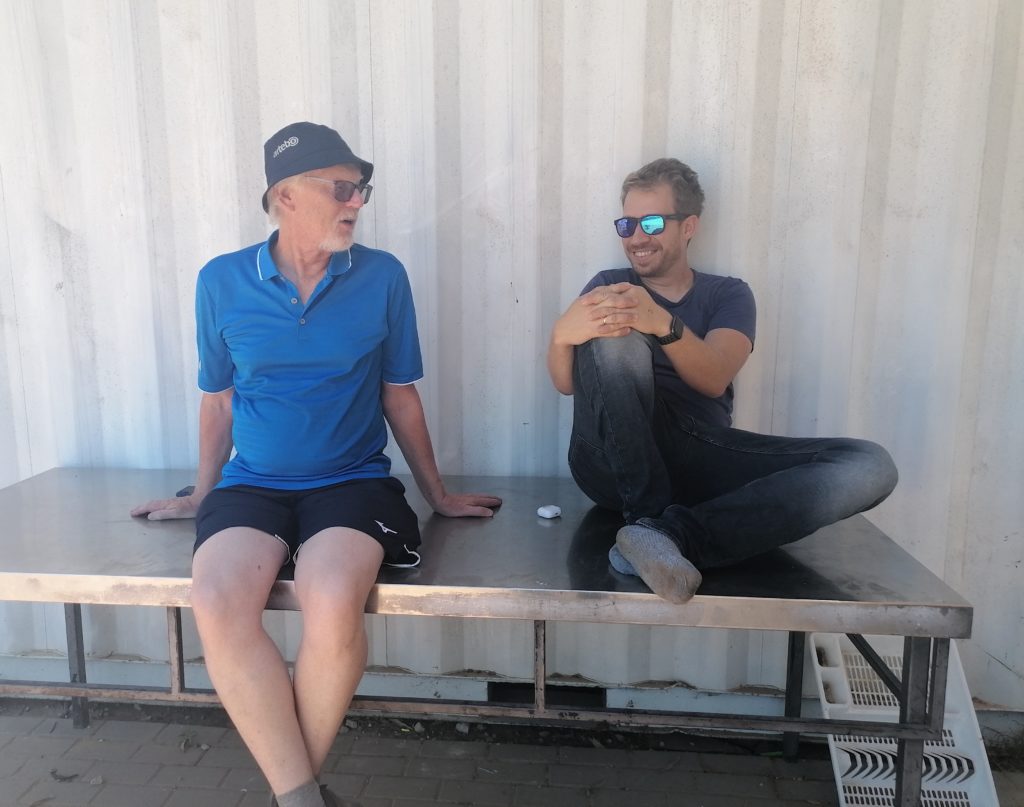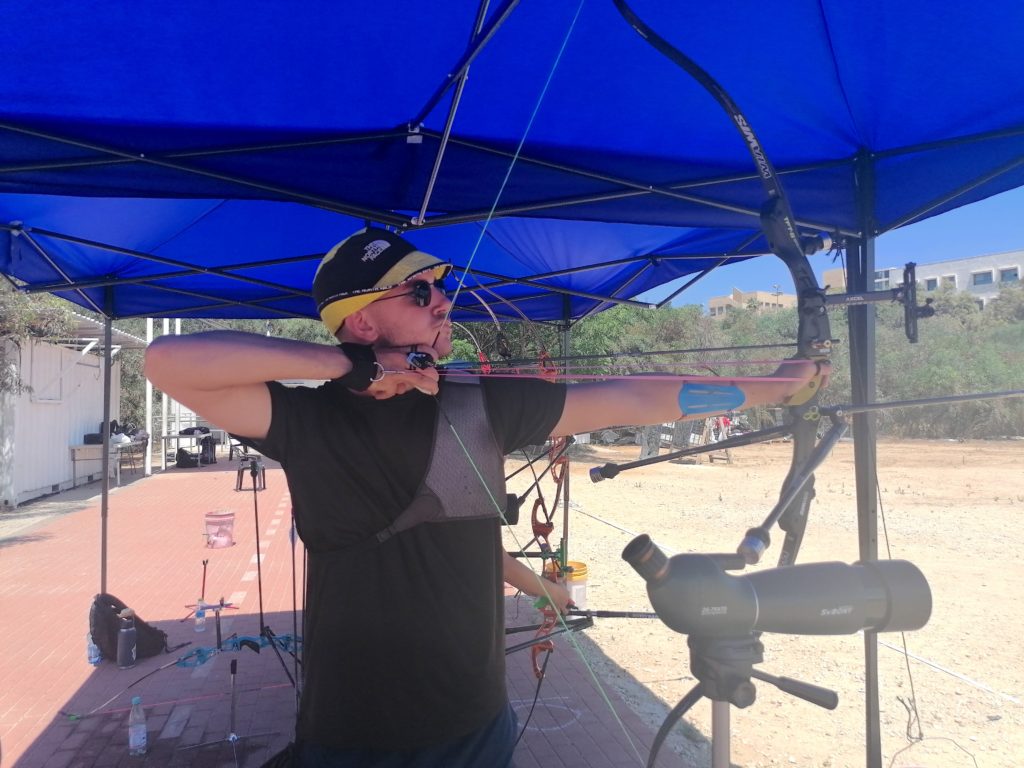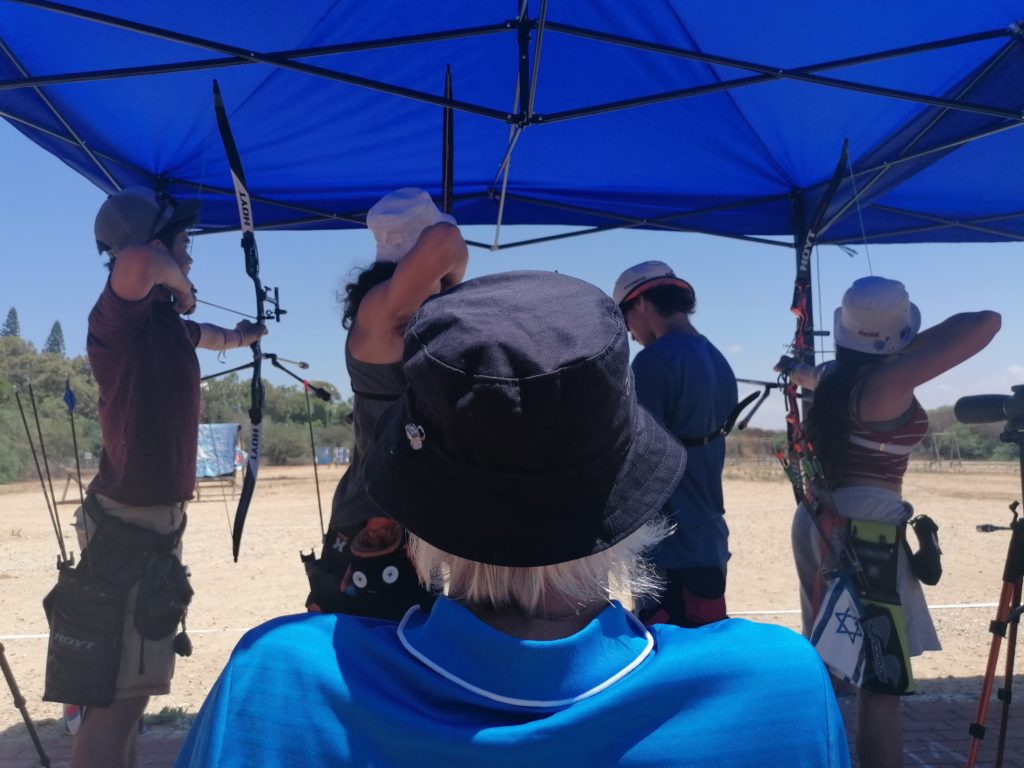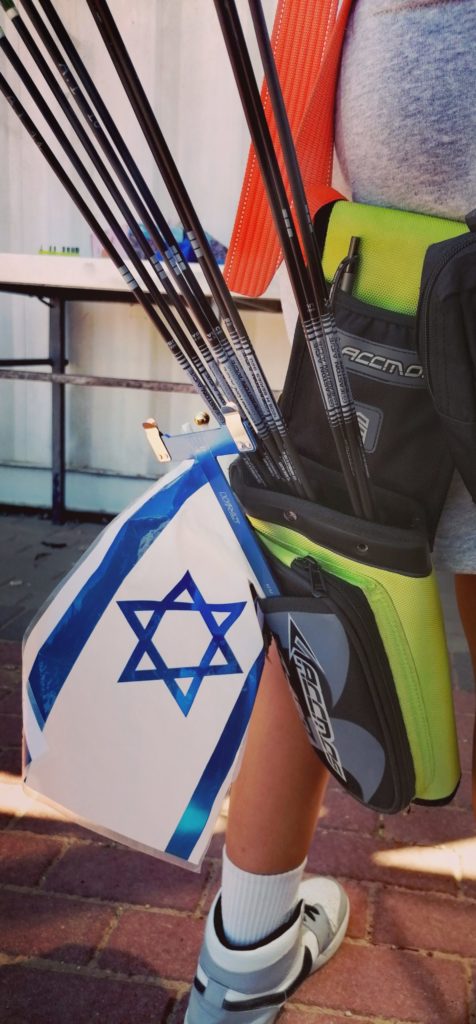Kristina Dolgilevica visited the new home of coach Richard Priestman
I was invited to visit the Olympic national team training grounds on their range, adjacent to the Wingate Institute, situated in the coastal city of Netanya, near Tel Aviv. It was great to catch up with the newly appointed national coach, Richard Priestman, and his new team.
Israel had just returned from the European Championships in Munich, to catch up on a few days of practice before flying out to the World Cup in Paris. I was also fortunate to meet and speak to a very busy Guy Matzkin, perhaps the best-known figure in Israeli archery.
Guy’s main professional activity within the sport is now focused on psychology, and he is currently working on a book addressing the psychological demands of archery. Watch this space – it should be very good indeed.
Established in 1957, the Wingate Institute is an Olympic centre that hosts many national teams’ activities – gymnastics, swimming and judo, to name a few; the new wing boasts a 10-lane swimming pool. Because of its diverse geography, the city is home to paragliding, lacrosse and water polo as well. It also facilitates the unique Krav Maga, or hand-to-hand combat training, for army members and other athletes and personnel.
The legendary founder of this self-defence school, Imi Lichtenfeld, established the Krav Maga Federation in Netanya, bringing further fame and attraction to the area and the vibrant sporting cultures within.
If you are into sports, it is a must visit. Walking around the grounds can be a little problematic for a fair-skinned European like me, as the climate is rather tough: high humidity and the scorching sun can be challenging.
For the first time, my weather app alerted me to the highest, ‘extreme’ level of UV index – a real desert climate. While other sports are conveniently sheltered in the indoor facilities, archers practise in the more exposed field adjacent to the main campus, which receives the full glare of the sun.
The facilities are simple and consist of a few converted containers to fulfil the basic storage needs. Archers have set up a pop-up gazebo for shelter, and it does indeed serve as a little oasis in the desert.
Guy explained to me that the team will be moved to another training location, because the land on which the current shooting range is set up will soon be redeveloped. Archery remains a minority sport in most countries, and only medals will bring in the cash needed for improvement of the training facilities.
So, it is up to the new national coach to take the team to the next level. Richard Priestman is a highly experienced international coach who needs little introduction; twice an Olympic medallist for GBR, he has coached all over the world. He joined Team Israel at the beginning of June and is going through
a period of familiarisation with this young group of hopefuls, including Itay Shanny, who turned heads around the world by making the last 16 at the Tokyo Olympics.
On his plans, Richard said that he will begin to really develop his players after the World Cup events, as he would get a good chance to observe the archers in a high-performance environment first hand, up close and personal.
When I asked him how he finds his new environment and how working with this team differs from the work with Team GB, Richard was very impressed, adding that a lot of work would be done to boost the ‘hunger’ for those medals and podium places.
Having observed the archers myself, I found them to be a diverse, but very close group with a great sense of humour and banter. Israeli people, in general, have a very good sense of humour and quick wit. What is also highly commendable is that the archers manage to find time for other interests. It was certainly unexpected to find out that Itay Shanny sings in a metal choir.
Above all, what I was most struck by was the discipline. I am not talking about the military kind, but more about the willingness ‘to be there’ in the scorching desert field. While almost all the young team members are currently in the army, the feeling I got was different to that of the strict appearance of the Korean cadets and their unique cultural norms.
The Israeli team seems to have a little bit more fun – they smile a lot, and take care of each other in a more familial way. Technically, all their archers look different too, so it will be very interesting to see how the shooting form transforms over time.
It was also interesting to catch them in that short transitional period from one competition to another, so each one was working on their own thing: Itay, on his mental process; Eyal, on his expansion; Niv, on his bow tune. It seems certain that Richard will have a great team on his hands very soon.






This article is on my father – so I had to give it a read of course. It really helps to paint a picture of this new journey for him – so thank you for that. Enjoyable read.
It is my pleasure, I am happy that you found it useful! Your father is in an exciting place!